Search Results for: Bees
Skip to resultsCan’t find what you’re looking for? Visit our FAQ page.
1,568 results for: Bees
-
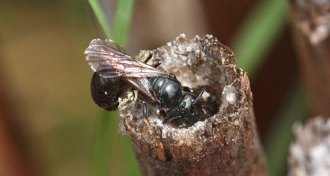 Animals
AnimalsThe first male bees spotted babysitting are mostly stepdads
Some male bees guard young that are likely not their own while mom looks for pollen, a study finds.
By Susan Milius -
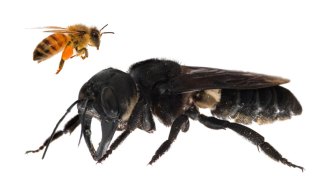 Animals
AnimalsThe world’s largest bee has been rediscovered after 38 years
Researchers rediscovered the world’s largest bee living in the forests of an island of Indonesia.
By Jeremy Rehm -

March 16, 2019
In the March 16 SN: Disappearing Bering Sea ice, nanohealers, the world's largest bee, pollen’s beautiful physics, a tiny T. rex relative, testing Ebola drugs in Congo and more.
-
 Animals
AnimalsThis honeybee parasite may be more of a fat stealer than a bloodsucker
Inventing decoy bee larvae prompts a back-to-basics rethink of a mite ominously named Varroa destructor.
By Susan Milius -
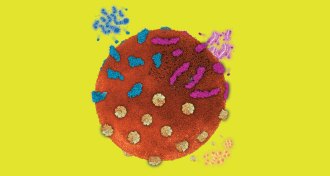 Health & Medicine
Health & MedicineNanosponges sop up toxins and help repair tissues
Nanoparticles coated with blood cell membranes can move through the body to clean up toxins or heal tissues — without instigating an immune reaction.
-
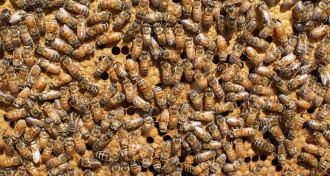 Animals
AnimalsRebel honeybee workers lay eggs when their queen is away
A honeybee queen’s absence in the colony triggers some workers to turn queen-like and lay eggs, sometimes in other colonies.
By Yao-Hua Law -
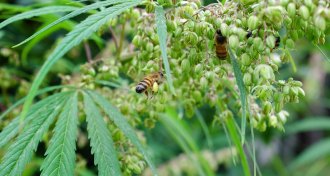 Animals
AnimalsHemp fields offer a late-season pollen source for stressed bees
Colorado’s legal fields of low-THC cannabis can attract a lot of bees.
By Susan Milius -
 Psychology
PsychologySometimes a failure to replicate a study isn’t a failure at all
Ego depletion is one of the most well-known concepts in social psychology. A recent study can’t confirm an old one showing it exists. Who is right? Probably everyone.
-
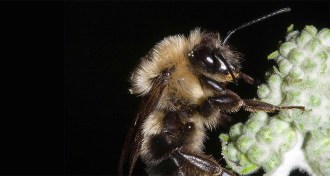 Animals
AnimalsWhat bees did during the Great American Eclipse
A rare study of bees during a total solar eclipse finds that the insects buzzed around as usual — until totality.
By Susan Milius -
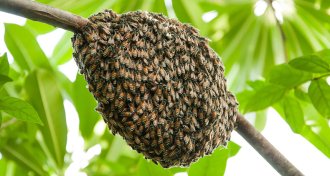 Life
LifeHere’s how clumps of honeybees may survive blowing in the wind
Honeybees clumped on trees may adjust their positions to keep the cluster together when it’s jostled by wind, a new study suggests.
-
 Anthropology
AnthropologyThe way hunter-gatherers share food shows how cooperation evolved
Camp customs override selfishness and generosity when foragers divvy up food, a study of East Africa’s Hazda hunter-gatherers shows.
By Bruce Bower -
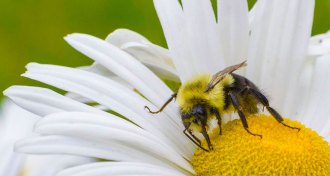 Animals
AnimalsWhy humans, and Big Macs, depend on bees
Thor Hanson, the author of Buzz, explains the vital role bees play in our world.